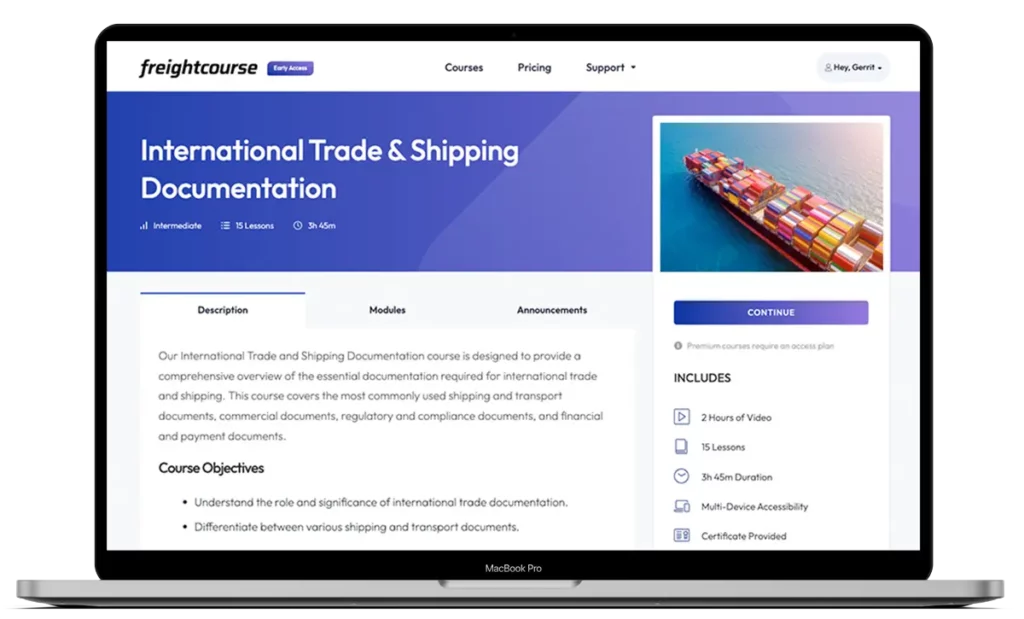Container maintenance fees are charges associated with the upkeep and repair of shipping containers used for transporting goods. These charges typically cover expenses related to inspecting, repairing, and maintaining shipping containers to ensure they remain in good condition for safe, efficient, and continued use.
Container maintenance charges are typically imposed by companies that own shipping containers. These charges are levied to offset the costs of maintaining these containers and to ensure the upkeep and longevity of them.
In some markets, the container maintenance fee sometimes replaces the more traditional container deposit fees (a form of security deposit), which are collected upfront by the shipping line and used as collateral.
In the following sections, we’ll be taking a closer look at how much container maintenance fees are, what these fees are designed to offset, who these fees are levied upon, and if they can be waived.
What Are Container Maintenance Fees Collected For?
As stated, container maintenance fees are collected by shipping lines to offset the ongoing maintenance of shipping containers. We’ve further elaborated on some of these activities including the following:
- Inspection – regular inspections are conducted in order to identify any damage or issues with the shipping container. This is typically done inside the carrier’s container yard and includes checking the structural integrity and functionality of all components.
- Repairs – If any damage or defects are identified during the inspection process, repairs are carried out accordingly. Typically container repairs often include knocking out dents, fixing the flooring, repairing the refrigeration unit, repainting, and welding.
- Maintenance: There are also other ongoing maintenance tasks that are performed to ensure the containers remain in optimal and seaworthy condition. This includes lubricating hinges and locks, maintaining the flooring, and more.
How Much Are Container Maintenance Fees?
Container maintenance fees differ depending on the shipping line, destination, container size, and type. On average, the shipping lines charge about $15 for 20-foot standard containers and about $30 for a 40-foot standard shipping container.
These fees are typically imposed on a per-container basis and are regarded as an accessorial charge. Non-payment of these fees may result in penalties, suspension of services, or legal action for the consignee or shipper.
Who Pays Container Maintenance Fees?
Container maintenance fees are typically paid by the consignee, which is the party that is receiving the shipping container. These fees are collected at the destination, either directly by the shipping company or through the freight forwarder or agent involved in the transportation process.
If the consignee fails to pay the container maintenance fees, several consequences may arise. The specific actions taken can vary depending on the terms and conditions outlined in the contract or agreement between the parties involved.
Non-payment of these fees can result in penalties, such as additional charges, late payment fees, or interest. In more severe cases, the shipping company may withhold the release of the cargo or take legal action to recover the outstanding fees.
Failure to pay can also impact future business relationships and may lead to difficulties in using the shipping line and its containers for subsequent shipments.
Can These Charges Be Waived?
Generally speaking, container maintenance fees cannot be waived, as maintenance costs are ongoing and carriers are required to offset them. There may be some shipping lines that are able to make exceptions, based on the overall business with them.
The possibility of waiving these charges also depends on the policies and agreements between the parties involved. In general, waivers can be negotiated based on factors like the volume of business, long-term agreements, or special arrangements between the parties.

Get Free Course Access
If you enjoyed the article, don’t miss out on our free supply chain courses that help you stay ahead in your industry.

Gerrit Poel
Co-Founder & Writer
at freightcourse
About the Author
Gerrit is a certified international supply chain management professional with 16 years of industry experience, having worked for one of the largest global freight forwarders.
As the co-founder of freightcourse, he’s committed to his passion for serving as a source of education and information on various supply chain topics.
Follow us